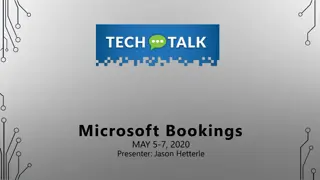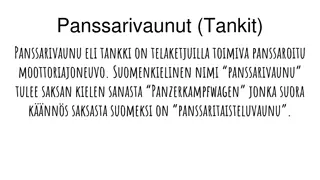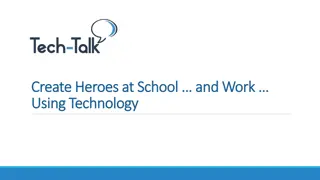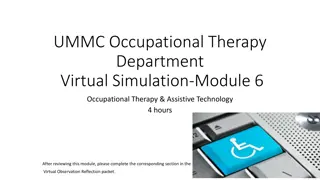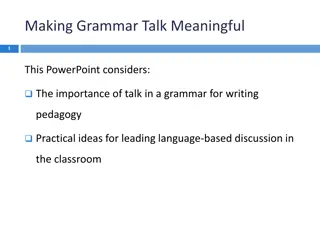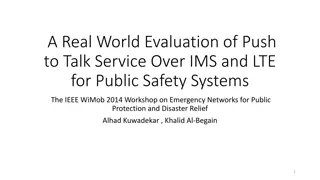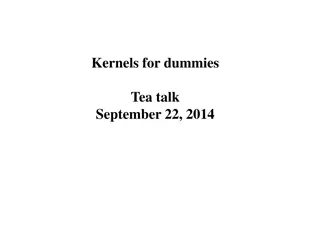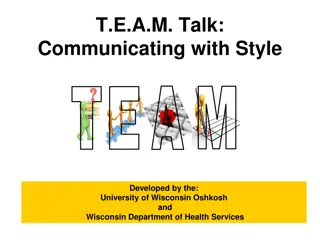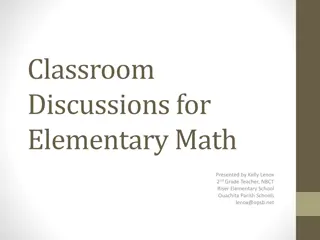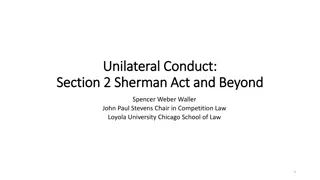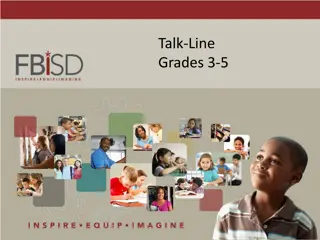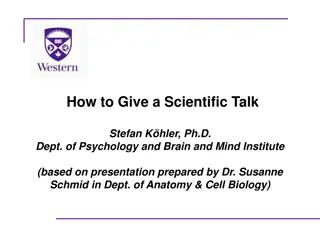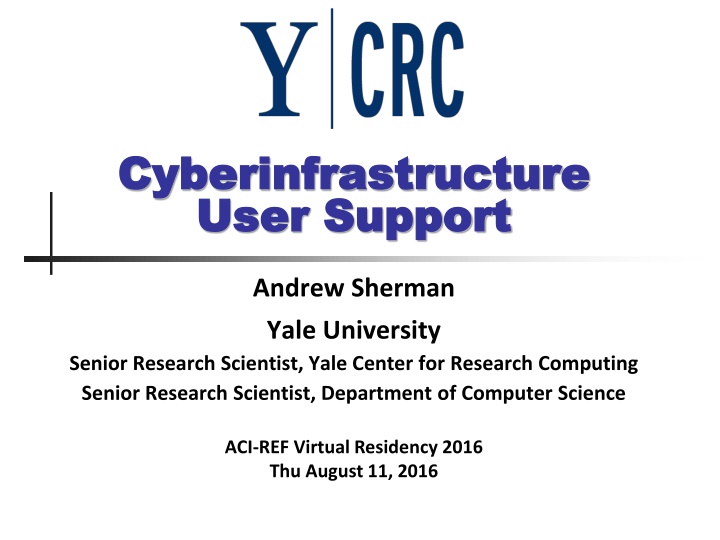
Cyberinfrastructure and Research Computing at Yale University
Explore the cyberinfrastructure and research computing initiatives at Yale University, spearheaded by the Yale Center for Research Computing. Learn about their responsibilities, user support strategies, and goals in advancing scientific research through advanced computing technologies.
Download Presentation

Please find below an Image/Link to download the presentation.
The content on the website is provided AS IS for your information and personal use only. It may not be sold, licensed, or shared on other websites without obtaining consent from the author. If you encounter any issues during the download, it is possible that the publisher has removed the file from their server.
You are allowed to download the files provided on this website for personal or commercial use, subject to the condition that they are used lawfully. All files are the property of their respective owners.
The content on the website is provided AS IS for your information and personal use only. It may not be sold, licensed, or shared on other websites without obtaining consent from the author.
E N D
Presentation Transcript
Cyberinfrastructure Cyberinfrastructure User Support User Support Andrew Sherman Yale University Senior Research Scientist, Yale Center for Research Computing Senior Research Scientist, Department of Computer Science ACI-REF Virtual Residency 2016 Thu August 11, 2016
Goals for this session What is CI, and how does it differ from conventional IT? CI user categories, and how to support them Some of the human aspects of CI support (i.e. politics, conflicts) Policies, education, outreach, collaborations, and networking These slides are based on material from Mehmet (Memo) Belgin (GA Tech), modified by Henry Neeman, and are used with permission. Numerous edits have been made. ACI-REF Virtual Residency 2016, Thu August 11, 2016 2
Yale Center for Research Computing Free-standing center reporting to Deputy Provost for Research (dotted lines to the medical school and ITS); created in July 2015 Who we are (~15 FTEs) 2 Faculty Directors (Arts & Sciences; Medical School) Executive Director ACI-REFs (6+): 2 research faculty; 5+ others; aligned to specific clusters HPC Engineering/System Administration Team (6) Director of Research Services (education, communications) Who we aren t (ITS) Desktop or Lab Support Campus Network Operations (Science Network & DMZ is shared) Data Center Operations (power, etc.) Security & Authentication Services 3 ACI-REF Virtual Residency 2016, Thu August 11, 2016
YCRC Responsibilities Cyberinfrastructure 5 HPC clusters (~17K cores??) HPC data storage (~8 PB) Research data management Integration with campus-wide Storage@Yale active & archive tiers Some integration with lab and instrumentation storage Science Network & DMZ Research & Teaching Support Dedicated support (YCGA, G&G) HPC software & algorithm installations, tuning & consultation Support for science & engineering software applications National infrastructure assistance Grant preparation Faculty recruitment (startup pkgs) HPC support for classes Education & Training Parallel Computing (credit class) Research Computing Workshops Getting Started Bootcamps Python, Parallel R, GIS Group/Dept. Bootcamps XSEDE & vendor workshops User groups Outside Community CASC (http://www.casc.org) Working groups on beyond hardware and regulated data XSEDE Campus Champions (2) ACI-REF (CaRC); ACI-REF-VR Northeast BigData Hub LCI 4 ACI-REF Virtual Residency 2016, Thu August 11, 2016
What the Heck is CyberInfrastructure (CI), Anyway? Components Computing systems Data storage systems Advanced instruments and data repositories Visualization environments High Speed Networks People Purpose Enable scholarly innovation and discoveries not otherwise possible Based on Indiana University s definition 5 ACI-REF Virtual Residency 2016, Thu August 11, 2016
Differences between CI and Conventional IT Primary target is performance Usually relies on conventional IT services (by a separate team) More focus on supporting end-users than services Uses common IT technologies in uncommon ways May mix shared and dedicated resources in one entity Requires specific middleware and software layers Requires code compilations using complicated mechanisms May require specific knowledge about the application/science Has irregular usage patterns, which may become obvious and troubling to users ACI-REF Virtual Residency 2016, Thu August 11, 2016 6
Outline Part I: CI user expectations, categorization and commonalities Part II: Policies, Politics, Conflicts and Personality Management Part III: Education, Outreach, and Networking ACI-REF Virtual Residency 2016, Thu August 11, 2016 7
Faculty (a/k/a Principal Investigator) Expectations Typical Roles Research entrepreneur & teacher Manager and funder of CI users Often knowledgeable about CI but doesn t use it directly (that pleasure is reserved for students & postdocs!) May own or pay for resources and services (but shared resources may be free at some institutions) Expectations: CI resources are reliably up and running on 7x24 basis Students and collaborators have fair (?) access to CI resources required to carry out research or classroom assignments on time Assistance available as and when needed Regular usage and expense reports (especially for storage) ACI-REF Virtual Residency 2016, Thu August 11, 2016 8
Actual CI User Expectations Typical Roles Some hands on faculty Usually students, postdocs, or others who are not permanent Permanent research staff or research faculty External collaborators Expectations 7x24 access to CI resources (and short job wait times, of course) Insider relationship to CI staff for advanced users Ultra-fast learning curve Simple and instant solutions to complex problems Applications running much faster than on their desktops (not always possible!) Help diagnosing/fixing problems that may be externally controlled Answers that match their level of knowledge ACI-REF Virtual Residency 2016, Thu August 11, 2016 9
CI User Categories Three broad categories: Novice Intermediate Advanced Difficult to identify a user's category without any prior interaction The language used in requests is a good indicator Replies to follow-up questions also reveal the level of proficiency If uncertain, assume novice (but don t make it obvious!) ACI-REF Virtual Residency 2016, Thu August 11, 2016 10
Category 1: Novice Users Characteristics Little experience with Linux or command-line environments May use Matlab, Mathematica, and sometimes R (or even Excel) May have limited knowledge of a scripting language like Python Rarely any inkling about parallelism Generate up to 40-50% of support requests. Common examples: Desktop setup (especially for Windows) Login procedures (ssh keys, two-factor authentication, etc.) Finding software on the cluster(s) Finding help and documentation Most requests are straightforward, but some simple-sounding ones may take a lot of work (or be impossible) ACI-REF Virtual Residency 2016, Thu August 11, 2016 11
Support Activities for Novice Users Up-to-date website with reasonable documentation for novices Getting-started presentation or on-line tutorial (possibly customized for the user s desktop OS) Linux 101 workshop with software suggestions (e.g., easy editor) Friendly ticket system for requests, questions, and assistance Walk-in office hours Make it easy to find software, manage environment & run jobs Tools like Lmod Cross-cluster standardization of environment, job scheduler, etc. Provide annotated template submission scripts Software installation assistance Help with tools to move data to/from clusters ACI-REF Virtual Residency 2016, Thu August 11, 2016 12
Category 2: Intermediate Users Characteristics Have prior Linux cluster experience; can create job scripts, but may not understand system-wide impact of their actions Varying degrees of proficiency in Python, C, Fortran, R, etc. Use workflows involving multiple domain-specific packages Often notice and report HW or system problems May use web search to try to overcome difficulties Generate up to 30-40% of support requests. Common examples: Assistance with complex software installations Assistance with performance issues Help with complex job scripts, job arrays, or parameter studies Special requests ( bending the rules ), such as job priority or quota ACI-REF Virtual Residency 2016, Thu August 11, 2016 13
Effective Support for Intermediate Users Teach them to fish : Offer advanced, possibly domain-specific, workshops; take advantage of XSEDE or vendor offerings; Software Carpentry or Data Carpentry may be valuable for some users Build strong individual working relationships since these users often serve as local trainers & experts for their groups. Be transparent in discussions, since they can distinguish fact from speculation (and will probably put your advice to the test). Admit when you don t know something. You aren t expected to know everything! But then try to find out and follow up! (Network!) Help them find solid, high-quality on-line information (vendor sites, user forums, etc.) pitched at the proper level. Assist or do complex software installations, especially those involving parallel codes or significant optimizations. Help with code development/debugging/tuning may pay big dividends later. ACI-REF Virtual Residency 2016, Thu August 11, 2016 14
Category 3: Advanced Users Characteristics May be hands-on faculty, research staff, or advanced students Experience with and access to multiple clusters (including XSEDE, etc.) Technically proficient in scripting or programming languages Develop and/or use parallel applications Develop complex workflows and job scripts Always trying new things; willing to experiment with new software Generate up to 10-15% of support requests. Common examples: Installation of complex software & tools ( It s just 1 Python module! ) Requests bordering on R&D Special requests/treatment (often outside of normal channels) Help with special hardware (e.g., GPUs) Bugs found in hardware, 3rd party applications, or libraries ACI-REF Virtual Residency 2016, Thu August 11, 2016 15
Effective Support for Advanced Users Apply all support techniques for intermediate users here, too. Communicate and meet regularly with them. Happy advanced users and their faculty advisors/PIs may often be your strongest advocates at your institution. Treat advanced users as peers; they may know as much or more than you do about research computing. As appropriate, involve them in hardware acquisitions and ACI grant proposals. Collaborate! Resolving many of the complex problems they encounter may require close cooperation among ACI-REFs, system administrators, and others. Be flexible. Make small rules exceptions when they won t impact others. However, watch out for slippery slopes. ACI-REF Virtual Residency 2016, Thu August 11, 2016 16
Outline Part I: CI user expectations, categorization and commonalities Part II: Policies, Politics, Conflicts and Personality Management Part III: Education, Outreach, and Networking ACI-REF Virtual Residency 2016, Thu August 11, 2016 17
Policies Have well-defined written policies. These set everyone s expectations and avoid misunderstandings. Publish policies in places easy to find (online). Require PIs to accept your policies and make PIs responsible for the behavior of their students, postdocs, and staff. Be prepared to explain the reasoning behind each policy item. Make policies strict (conservative), but consider exceptions as needed (but avoid slippery slopes!) Encourage users to openly discuss and criticize the policies. Don t hesitate to update policies to stay relevant. Build trust and effective communication with decision makers. Seek delegation privileges to speed things up. Influence, but don t make, policies for resources you don t own. ACI-REF Virtual Residency 2016, Thu August 11, 2016 18
Scheduled Maintenance Set regular schedule, with multiple advance announcements. Unscheduled downtimes are no excuse for skipping maintenance Provide a summary of completed tasks after maintenance. Have clear goals; plan ahead in great detail: Work with your vendors Team member / task associations Estimated task duration Critical paths and fallback plans Prepare for potential problems during/after maintenance days Show best effort for minimal impact Configure the scheduler to have no running jobs Disable user access to resources during the maintenance activities Assist users in moving work to alternative clusters when possible ACI-REF Virtual Residency 2016, Thu August 11, 2016 19
Politics and Conflicts Tricky but inevitable No magic formula, need case-specific creative solutions Biggest challenge: conflicts due to limited resources Configure systems to match your policies. Collect and store data for past and present usage. Provide users with tools to browse data/statistics for their accounts. Run regular audits to defuse problems before they explode. Consider a scavenge queue for pre-emptible jobs ACI-REF Virtual Residency 2016, Thu August 11, 2016 20
Tiers of Conflict Internal to a group/department: Usually easier to solve with communication and informal agreements. Sometimes a good job scheduler can help (e.g., multi-level fairshare). Provide advice, but get the PI or chair to take the lead and own the resolution. Between groups/departments: Can get messy, but may be avoidable if you stick to your policies. Be even-handed; don t show favoritism. Get all agreements in writing! Between users and CI support staff: Have clear policies handy as a basis for declining unreasonable or impossible requests, and keep solid statistics/data as evidence. As above, be even-handed; don t show favoritism. Get all agreements in writing! ACI-REF Virtual Residency 2016, Thu August 11, 2016 21
Personality Management Some users are more difficult than others. That s life! Don t take things personally; report harassment; never retaliate Users don t mean to be difficult; but may be under great pressure and extremely frustrated If you make a mistake, take responsibility and offer an apology. Show empathy and sincerity Acknowledge that: you understand the user s concerns; you are aware of its particular impact on the user. Be sensitive to cultural differences and language difficulties. Use humor appropriately, and avoid being awkward or insulting. Communicate frequently while working on any issue ACI-REF Virtual Residency 2016, Thu August 11, 2016 22
Outline Part I: CI user expectations, categorization and commonalities Part II: Policies, Politics, Conflicts and Personality Management Part III: Education, Outreach, and Networking ACI-REF Virtual Residency 2016, Thu August 11, 2016 23
Trainings and Tutorials Research Computing Workshops Getting Started Bootcamps Python, Parallel R, GIS Group/Dept. Bootcamps XSEDE & vendor workshops Software Carpentry; Data Carpentry; SC Tutorials & Workshops Special Topics Parallel Computing Debugging/optimization of codes (including parallel) System architecture specific details Advanced use of common tools (Scientific Python, Parallel MATLAB) 24 ACI-REF Virtual Residency 2016, Thu August 11, 2016
Group Consultations Mini-orientations for new groups ( On-Boarding ) Use group meetings for feedback & to resolve internal conflicts Resolution of technical problems that are specific to a group Technical feedback to assist in policy making and system purchases Introduce services to new groups interested in getting resources ACI-REF Virtual Residency 2016, Thu August 11, 2016 25
Collaborations with Researchers and Vendors Researchers helping researchers Crucial for staying relevant: What is your faculty planning? Collaborative grant writing Collaborative projects/papers (acknowledgements or co-authors) Support for classes and workshops Developer/vendor collaborations Bug tracking and fixes HW/SW information, evaluation of new systems and technology Pilot studies & benchmarks ACI-REF Virtual Residency 2016, Thu August 11, 2016 26
Some External Groups for Staff Training & Networking ACI-REF; ACI-REF-VR; CaRC XSEDE Campus Champions (national & regional) CASC (http://www.casc.org) Working groups on beyond hardware and regulated data Educause LCI (aimed at HPC system administration) 27 ACI-REF Virtual Residency 2016, Thu August 11, 2016
THANKS FOR YOUR ATTENTION! QUESTIONS? ANDREW.SHERMAN@YALE.EDU 28 ACI-REF Virtual Residency 2016, Thu August 11, 2016




